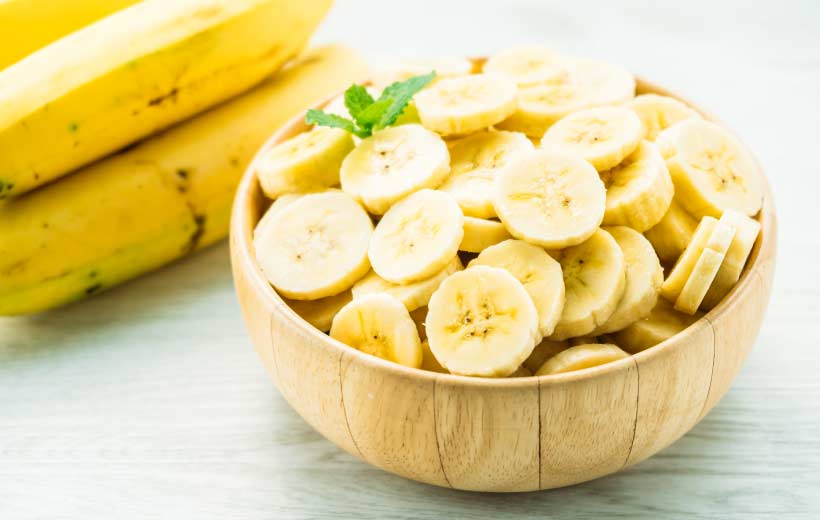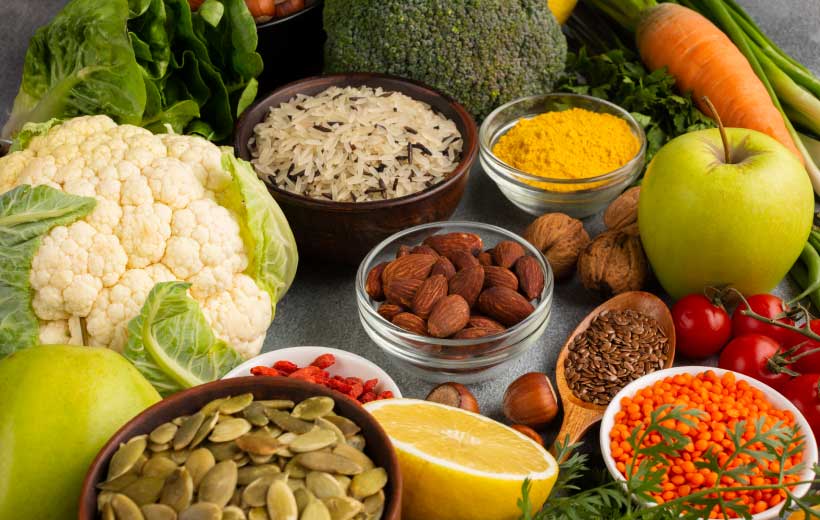Bananas contain fiber and resistant starch and are also a nutritious, low-calorie fruit that is beneficial in weight loss.
Contains the right amount of calories
Due to their moderate calorie content, bananas, like most fruits, are good choices in any weight loss diet plan. However, to effectively lose weight, you need to have a specific goal of daily calorie intake. If you’re not sure how many calories you’re consuming, track your total calorie intake from foods and drinks for several days.
As reported by the Centers for Disease Control and Prevention (CDC), the best way to lose weight and maintain a healthy weight is to aim to lose between 0.45 and 0.9 kg per week. To determine a calorie goal corresponding to the above reduction, make sure your body calorie intake is between 500 and 1,000 calories per day, and can add bananas to your menu.
A large banana about 20cm in size contains about 121 calories, but if you choose a smaller banana only 15cm, you will reduce the calories by 1/4. Bananas provide enough calories for a snack, but can also ruin your weight loss plan if you have reached your daily calorie goal and still add this fruit to the menu.

In addition to the use of nutritional supplements, bananas are also a low-energy fruit, rich in fiber, and beneficial in weight loss.
Rich in fiber and resistant starch
The resistant starch and fiber in bananas not only aid in weight loss but also support digestive health. One large banana contains about 4g of fiber, which is in line with the recommended intake-based goals set by the Institute of Medicine: 25g per day for women and 38g for men.
Fiber plays an important role in weight loss because it slows digestion, helps you feel full, and keeps blood sugar levels in balance. According to an article published in the American Journal of Nutrition, avoiding abnormal spikes in blood sugar makes it easier for your body to burn fat and expend energy.
Most foods contain a complex carbohydrate that provides glucose for energy, but some foods contain another type of carbohydrate called resistant starch. Resistant starches are not completely digested, instead, they are fermented in the colon. Resistant starch produces fewer calories than other carbohydrates. Green bananas are one of the top sources of resistant starch and will decrease in content as they ripen. That is, if you eat a green banana instead of a ripe banana of the same size, your body will absorb fewer calories.
In addition, studies also show that resistant starch can stimulate the breakdown of stored fat, supporting the weight loss process.
Rich in carbohydrates
In the past, bananas were thought to be bad for weight loss because they have more carbohydrates (carbs) than other fruits. Most fruits are lower in carbs, but the carb count in bananas also ranges from 23g (about the size of a small banana) to 31g (the equivalent of a large banana). As mentioned above, some of the carbs in bananas are resistant starches that other fruits don’t and the key factor is their impact on blood sugar levels, which helps in fat burning and energy consumption.
Contains a lot of water
According to the US CDC, energy density is a term used to describe the number of calories per gram of food. Foods with a low energy density provide fewer calories, mainly because they have extra water and zero-calorie fiber.
The benefit of foods with low energy density is that you can eat more food while reducing your calorie intake, aiding weight loss. It also means that you don’t feel hungry while on a diet and bananas are a food in this group. In addition to the rich fiber content, bananas also contain up to 75% water, so they are also quite low in energy.
Follow the website ongreenbeauty.com to get more health, nutrition, and beauty information to protect the health of yourself and your loved ones in your family.




